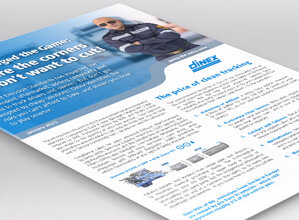- News and Events
- News
- 2023.01, Euro VI Changed the Game

The introduction of Euro VI in 2013 was an important environmental milestone. Compared to Euro V, toxic Nitrogen Oxides (NOX) was reduced by 80%, Particulate matter by 50%, and finally a limit was made for the quantity of ultra-fine particles. Type approval procedures was extended to not only lab-tests, but also on-road and In-Service Conformity tests, to improve real-life reflection.
Compliance called for more advanced Exhaust AfterTreatment Systems (ATS). Selective Catalytic Reduction (SCR) systems was significantly improved, and the introduction of Diesel Particulate Filters (DPFs) was inevitable. Low-Leakage decoupling, Thermal Insulation, Sensors and other electronics came along, while integration with OnBoard Diagnostics (OBD) prevented full vehicle functionality at any signs of faulty emission controls.
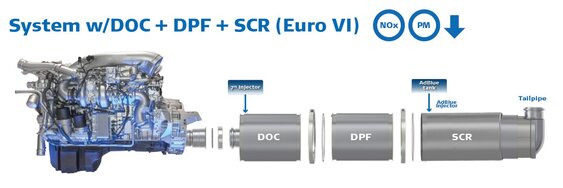
Exhaust systems had evolved from simple pipes and silencers, to miniature chemical processing plants. The technological advancements gave the OEMs an upper hand in terms of serviceability and spare parts, but the Independent Aftermarket is catching up, and as a customer this opens up to many new advantages and benefits – if you know how to avoid the pitfalls.
Over 95% of NOX emissions from trucks in Europe are caused by pre-Euro VI vehicles - which still represent roughly 2/3 of the vehicle parc.
The price of clean trucking
The environmental benefits of Euro VI are inarguably one of the most important legislative actions ever taken for bettering air quality. But the new more advanced systems have inevitably also made trucking more costly and complicated for the individual fleet owners and drivers. A few examples:
- Refueling of AdBlue: A Heavy Duty vehicle consumes 6 liters of AdBlue for every 100 liters of Diesel, in order to reduce NOX via the Selective Catalytic Reduction (SCR) catalyst.
- Particulate Filter Service: DPFs needs regular servicing to prevent excessive back pressure from trapped matter. It takes time, drives costs, and in case of defects the filter should be replaced.
- Catalyst unit failures: Diesel Oxidation Catalysts (DOC) and SCR-catalysts may also be subject to defects and will require replacement to restore full vehicle functionality.
- Mechatronics: Temperature-, NOX- and Pressure-sensors commonly referred to as Mechatronics, are all sensitive parts which in case of failure will indicate that there is a problem, and limit vehicle functionality.
- More expensive exhaust pipes: Higher grades of stainless steel, thermal insulation, leak-tight decoupling and more sensor connectors, has driven huge costs increases of exhaust pipes.
Save time and costs with the right partnership
While it is tempting to find the cheapest way around these added expenses, it is not always recommendable. Jumping the fence may end up being more costly in the long run while exposing your business to unnecessary risks.
There are many examples of Independent Aftermarket suppliers offering Euro VI spare parts and services without truly understanding their functionality or informing customers about the risks of downgrading the quality. As fleet owner, the legal compliance of your vehicles is ultimately your responsibility, and the long-term costs following the use of low-grade spare parts and services, lands on your table.
We know how it works –
cause we made it
Dinex is a leading global innovator, producer, and supplier to both the Independent Aftermarket and to some of the world’s leading OEMs. We’ve been a part of the industry for over 40 years and are the only supplier with inhouse competences covering all individual components of modern exhaust systems: From catalysts, filters, insulation, decoupling and sensors, to the more regular steel components.
Nobody understands your exhaust system – and your business – like we do. Many of the technical solutions used by OEMs was originally developed and produced by Dinex. But through our Aftermarket heritage we also understand the dynamics and cost sensitivity that you as a truck owner needs to adapt your business to. We have developed a range of product programs and services that helps Euro VI vehicle owners to achieve substantial cost reductions and reduce vehicle downtime, without compromising quality or performance. And finally, we provide a library of technical trainings while our competent technical support is ready to assist you.
To put it short: You don’t just need a supplier – you need a competent partner.
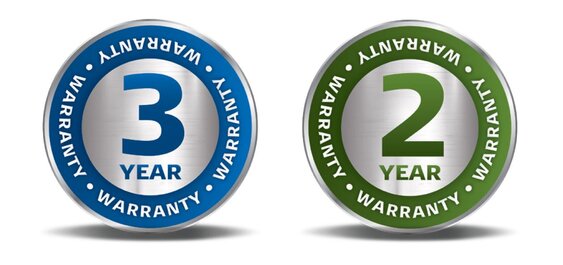
Dinex offers 3 years warranty on new spare parts, and 2 years warranty on reconditioned filters. That’s how much we trust our products.
Emission Manipulation:
Is it worth the risk?
The added costs of regular AdBlue refueling, occasional DPF service, and repair of complex Euro VI exhaust systems has made ground for a new market of illegal manipulation. With the use of third-party emulation units or OBD re-mapping, it is possible to fully operate the vehicle without AdBlue, with malfunctioning sensors and broken (or intentionally removed) SCR-catalysts and Particulate Filters.
While such manipulations are illegal to use on vehicles in operation, they are relatively easy and cheap to implement – but it is not without risk. Unannounced Roadside Inspection has intensified over the years, and so has the fines related in case evidence is found that the vehicle is fully functional even despite malfunctioning emission controls. A trend that will only continue, as the EU is expected to introduce further tightening of the Road Worthiness Legislation in 2023.
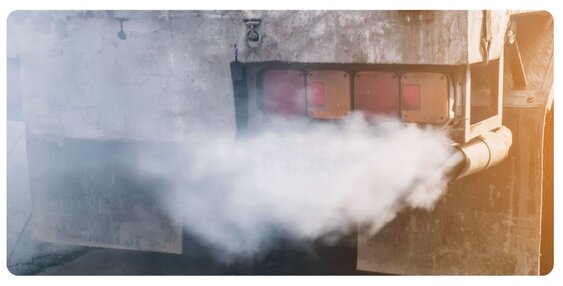
The Dirty Dozen: Roadside studies has shown that
even a small fraction of vehicles with manipulated or
malfunctioning exhaust systems, can be responsible for
60-90% of total traffic emissions.

Example of the levels of fines in a EU country, for using manipulated or non-type-approved emission parts.

The Smarter Choices
Thankfully, it doesn’t have to be expensive or complicated to operate a Euro VI truck. A properly maintained Euro VI truck is more fuel efficient than older vehicles, and to further reduce operating costs and eliminate legal risks we give you here 4 advice.
1. Replace malfunctioning sensors with Dinex
A single sensor-failure can cause the vehicle to enter emergency mode due to lack of emission control monitoring. Dinex is stock-keeping a wide range of quality sensors for Temperature-, NOX- and Back Pressure measurements. Fast delivery, full compatibility with the OEM’s OBD system and a competitive price level compared to OE, will quickly get you back on the road.
Keeping your SCR-system well-functioning, using quality sensors from Dinex and proper grade AdBlue, ensures high performance and increases lifetime of the whole AfterTreatment System.
2. Use only Type Approved substrates
Euro VI heavy duty vehicles are subject to In-Service Conformity. As critical parts of the vehicle’s overall type approval, this means that any replacement of catalysts and filters must be done using parts which has their own, separate type-approval for use with that specific vehicle. Otherwise the vehicle loses its approval.
The EU takes this seriously, and the European Rapid Alert system for dangerous products (RAPEX) has been in force several times against sales of catalysts and filters with missing approvals. Besides the risk of violating vehicle warranty, causing overall system damage, losing engine performance, and increasing fuel or AdBlue consumption, there is also a legal risk: Getting caught by roadside inspection driving a non-type approved vehicle, is punishable in accordance to national legislation – for both driver and vehicle owner.
Dinex sells only type-approved substrates based on our own inhouse developed chemical coatings and tested by third-party accredited institutes, for replacement and/or remanufacturing purposes.
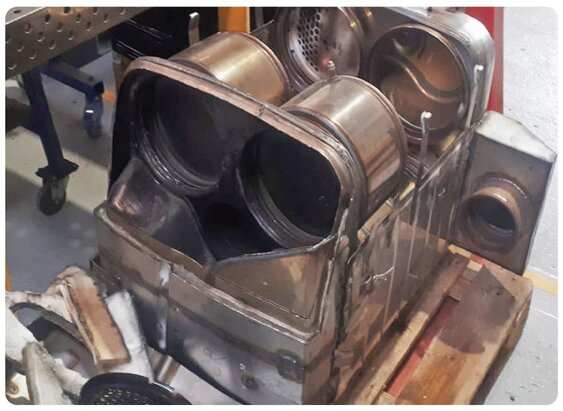
3. DPF Reconditioning:
Faster than cleaning – Cheaper in the long run
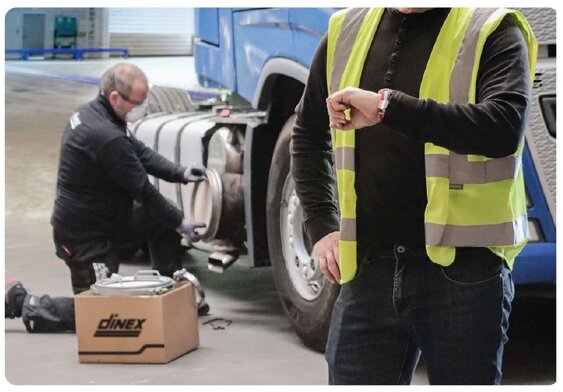
When it is time for servicing your Diesel Particulate Filter, a simple cleaning will always be the cheapest choice. But it often comes with a price of 24-48 hours of downtime, and even a well-performed professional 2-step cleaning will not remove all glazes of hardened ash that shades the filter’s catalytic coating. This affects the filter’s ability to regenerate and ultimately reduces time between service intervals.
A reconditioned filter is chemically cleaned in a third step, which restores the filters’ regenerative ability. You get longer service intervals, and the process of simply swapping out your old filter with a reconditioned one can be done in less than an hour.
Dinex offers a full range of reconditioned, type-approved filters at an attractive price, and even offers a cash-back for any returned filters in need for cleaning, as long as they are functional and type approved.
4. Consider remanufacturing
before buying new
A Euro VI silencer contains lots of expensive technology so in case of failure, replacing the whole unit is a costly affair. Dinex is offering its own growing range of Aftermarket Euro VI silencers, based on our own type-approved filters and catalysts, with similar quality and performance as originals, but at a competitive price.
But there are also alternatives. A Faulty Euro VI silencer is often the result of a defect SCR-substrate or Diesel Oxidation Catalyst (DOC). Most units are not designed for replacement of these, but more and more providers of remanufacturing services are offering to cut open, replace the defect substrate, and weld it back together.
Dinex supports the remanufacturing agenda by with our full range of type approved substrates and technical guidance of workshops. We are also an active member of the Automotive Parts Remanufacturer Association (APRA), the Remanufacturing Industry Council (RIC), and we welcome this much-needed alternative to always buying new, as a sensible step towards a more sustainable utilization of our planet’s resources.
